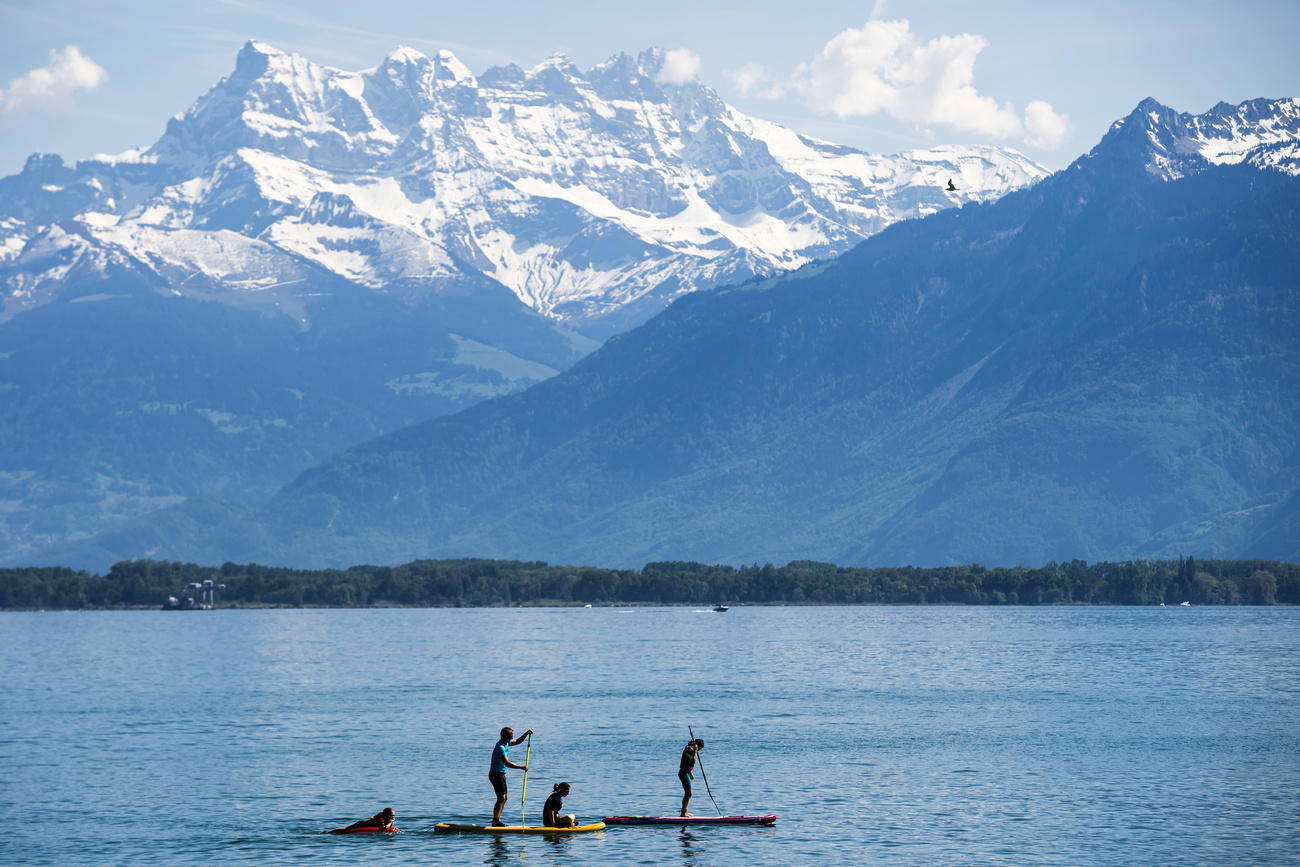
Paddle-boarding mishaps causing a headache for insurer

Stand-up paddle-boarding, one of the trendiest Swiss summer sports of the moment, is not as peaceful and harmless as it seems, says a Swiss accident insurance provider.
Since 2015, when the numbers of those practicing the sport started to take off, accidents reported have increased by 50%, says the Suva insurance group, which now logs some 500 paddle-related injuries each year.
The list of types of accidents and injuries is diverse, but most involve a loss of balance leading to a fall, either onto the board itself, or into the lake or river. Some boarders end up being hit by their own flailing paddle. Bruising, sprains, and open wounds have all been reported.
Some 90% of the accidents have happened to over-30-year-olds, Suva says, while two-thirds happen to men.
The insurance provider recommends a combination of good equipment and prudent practice to avoid accidents. For example, the cord attaching the board to the surfer’s foot should be long enough to avoid a big collision upon falling, while proper protection against both cold and warm weather should be planned.
Finally, those venturing further than 300 metres from a coastline are obliged in Switzerland to wear some form of life-jacket.

In compliance with the JTI standards
More: SWI swissinfo.ch certified by the Journalism Trust Initiative




























You can find an overview of ongoing debates with our journalists here . Please join us!
If you want to start a conversation about a topic raised in this article or want to report factual errors, email us at english@swissinfo.ch.